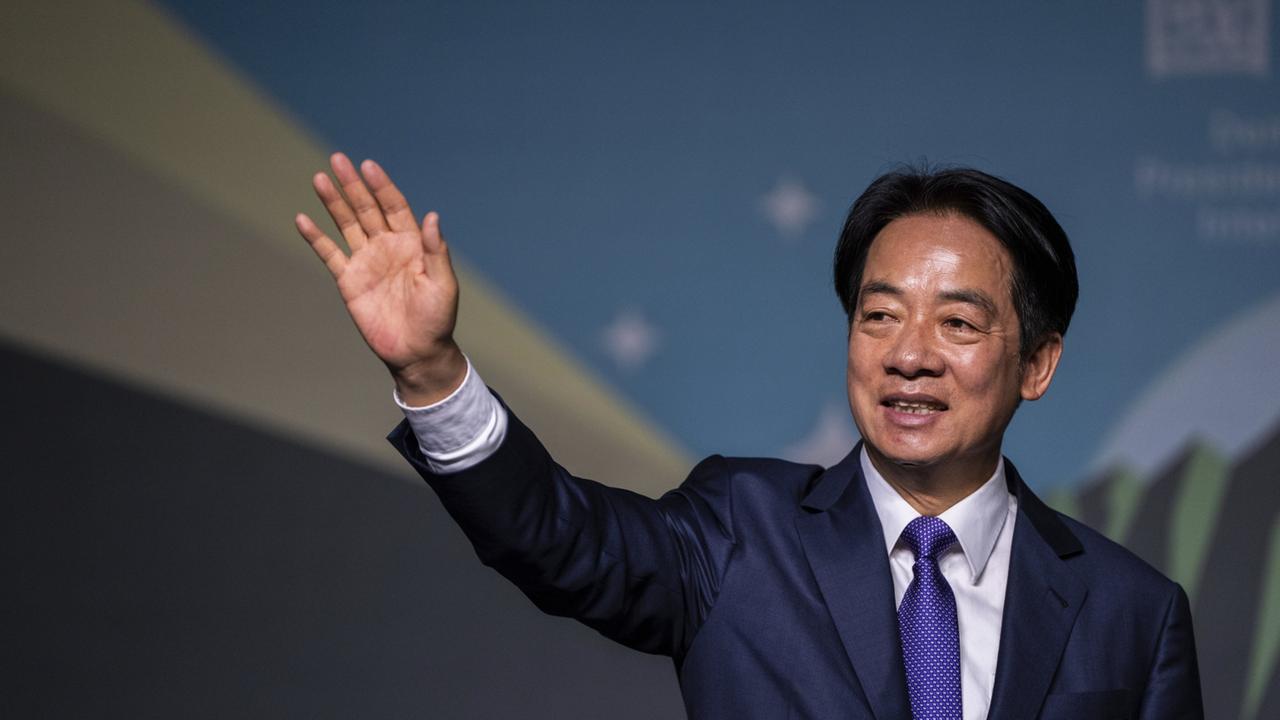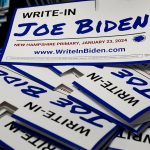In Taiwan, the presidency remains in the hands of the DPP, which stands for independence from China: the election winner is the previous vice president Lai. From Beijing it was said that this would not change the “inevitable reunification”.
It is not the result that the Chinese leadership in Beijing would have wanted: the people of Taiwan have elected Lai Ching-te as the new president, whose Democratic Progressive Party (DPP) supports Taiwan's independence from China. In the presidential election in the East Asian island nation, Lai won around 40 percent of the vote. He was previously deputy to President Tsai Ing-wen, who was not allowed to run again after two terms in office.
Taiwan thus opted for the status quo, especially with regard to its relationship with its powerful neighbor China. However, in the parliamentary elections that were held at the same time, the DPP lost its absolute majority, which is likely to make future government work more difficult.
“We are telling the international community that between democracy and authoritarianism, we are on the side of democracy,” Lai said in the evening. The tense relationship with China was a dominant election campaign issue in the country with more than 23 million inhabitants.
Background: China-Taiwan conflict
The dispute over Taiwan's status dates back to the Chinese Civil War, when the troops of the national Chinese Kuomintang fled to Taiwan after their defeat by the communists under Mao Tsetung. The communist People's Republic was founded in Beijing in 1949, while Taiwan developed into a liberal democracy as the “Republic of China”.
However, Beijing sees the island as its own territory. With its One China doctrine, Beijing demands that no country be allowed to maintain diplomatic and other official relations with the island republic if it wants to maintain a normal relationship with the People's Republic.
“Global peace depends on peace in the Taiwan Strait”
That evening, Lai called on China to maintain peace in the strait between the two states. “Global peace depends on peace in the Taiwan Strait,” he said. At the same time, he showed himself ready for cooperation with China.
Lai's opponents had also campaigned for exchanges with Beijing. However, only 33.49 percent and 26.46 percent of voters voted for Hou Yu-ih of the China-friendly and conservative Kuomintang (KMT) and Ko Wen-je of the populist Taiwan People's Party (TPP).
Hashtag “Taiwan Election” blocked in China
According to official information, China sees no reason to change course after Lai's victory. This election cannot change the general trend toward “inevitable reunification” with the mainland, Taiwan Affairs Office spokesman Chen Binhua said in Beijing. “The results of the two elections show that the Democratic Progressive Party is unable to represent prevailing public opinion,” he said.
The parliamentary and presidential elections apparently also caused great interest among Chinese Internet users: the hashtag “Taiwan Election” was a trending topic on the online platform Weibo – before it was blocked. There was no mention of the election in the evening news program produced by Chinese state broadcaster CCTV for all local stations.
Criticism of Japan
After Lai's election victory, several countries congratulated him – including Japanese Foreign Minister Yoko Kamikawa. Their congratulations were met with outrage in Beijing. As the Chinese embassy in Tokyo announced, they spoke out firmly against the minister's statement. Kamikawa had said: “We expect that the Taiwan issue will be resolved peacefully through dialogue, thereby contributing to peace and stability in the region.” The Chinese embassy described the minister's statement as “serious interference in China's internal affairs.”
Congratulations from several countries
The EU welcomed the outcome of the election. A spokesman for EU foreign policy chief Josep Borrell said we would like to congratulate all voters who took part in this democratic exercise. Taiwan and the EU share a commitment to democracy, the rule of law and human rights.
The British government also congratulated Lai, as did US Secretary of State Antony Blinken. He added: “We also congratulate the people of Taiwan, who have once again demonstrated the strength of their robust democratic system and electoral process.” However, US President Joe Biden emphasized that his country does not support independence for Taiwan.
Expert: War in the Straits unlikely
Taiwan expert Henning Klöter said shortly before the election that he assumed that Lai would continue the policies of incumbent President Tsai if she won. “That means: don't approach the People's Republic too offensively in terms of rhetoric, adopt a mild tone, but at the same time retreat to the position that Taiwan is already virtually independent,” said Klöter in the tagesschau.de-Interview.
According to Helena Legarda, a foreign and security policy expert at the Merics China Institute in Berlin, Lai's victory could increase tensions in the Taiwan Strait. “There is an expectation that Beijing will respond by increasing pressure on Taiwan,” she told the dpa news agency. Military exercises or coercive trade policy measures are possible. However, the expert considered a war in the strait to be unlikely.
Lai: Official Declaration of Independence unnecessary
The Taiwan Strait is the approximately 180 kilometer wide strait between the island of Taiwan and the Chinese province of Fujian. It is extremely important for international trade. Beijing's People's Liberation Army now regularly flies fighter jets into Taiwan's air defense zone as a show of force.
Lai Ching-te, who is also sometimes called William Lai, wants to upgrade Taiwan's defenses and thus deter China from starting a conflict. However, in his own words, he does not believe it is necessary to officially declare Taiwan's independence.




